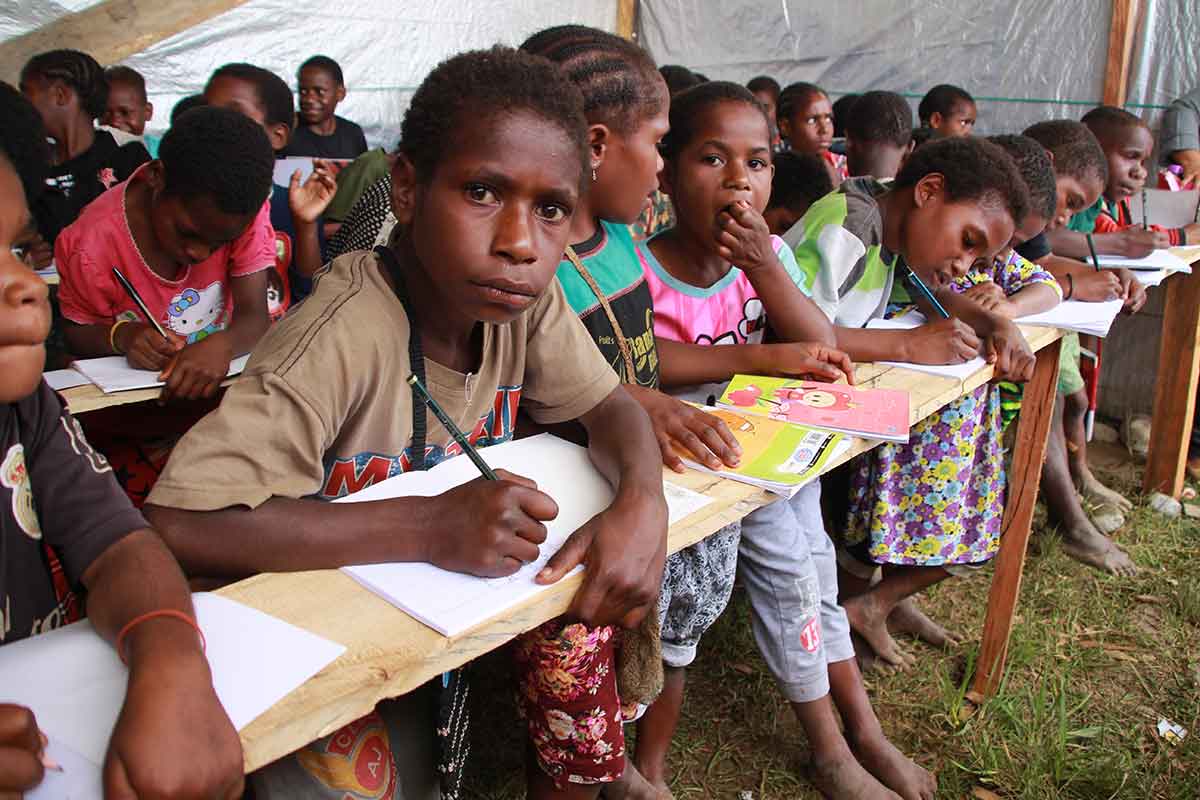Hundreds of students have fled fighting in Indonesia's restive Papua province, a local NGO said, amid unconfirmed reports of violent military reprisals after a massacre of civilian workers by separatist rebels.
The death of 16 government-linked employees at a remote jungle work camp in early December, marked a dramatic escalation from decades of mostly sporadic skirmishes between poorly armed and disorganised guerrillas and a powerful Indonesian military.
Subsequent clashes prompted the Nduga district government to evacuate more than 400 students to Wamena, the capital of neighbouring Jayawijaya district, according to Humanitarian Volunteers for Nduga and a local education agency official.
"Some of the students are suffering from trauma," said Ence Geong, a coordinator at the NGO.
"When the military came to the school in uniforms, some of the students ran" in fear.
Scores of other residents are believed to have fled to neighbouring districts or into the jungle amid allegations soldiers carried out arson, harassment and the killing of livestock and civilians, residents and activists said.
Local resident Sripona Nirigi said her elderly father Gemin – a priest – was shot dead in December during a sweep of the area by the military.
His burned corpse was found by one of her siblings some two weeks later, she added. Her account could not be independently verified.
Papua military spokesman Colonel Muhammad Aidi rejected allegations the military had fired on civilians, calling it a "hoax".
"If there are claims of civilian victims, they're definitely not ordinary civilians," Aidi said.
"They are part of the (separatists) that are attacking the military."
Legitimate military targets
Aidi said the army had investigated the alleged killing of the priest and denied he was shot by soldiers, saying it was still unclear whether he was alive or dead.
He added that two soldiers have been killed and several more were injured in clashes with rebels since the December massacre of workers who were building bridges and roads in Indonesia's most impoverished region.
The rebels claimed they were legitimate military targets.
Local commander Binsar Sianipar separately confirmed the students had been evacuated, but said it was due to a teacher shortage in the area, not the military presence.
Classes are being held in tents and the children are staying in overcrowded conditions at relatives' houses, Geong said. Some 80 teachers have joined them.
The military operations in Nduga have displaced at least one thousand people, according to lawyer and activist Veronica Koman.
"Jakarta ordered the military operation, but has been doing nothing to assist...civilians (who are) now internally displaced persons," said Koman, who is in contact with church leaders and activists in Papua.
"I've seen credible photos and videos of burnt livestock and houses, including a sick old man burnt inside a house."
Indonesian security forces have long been accused of rights abuses against Papua's ethnic Melanesian population including extrajudicial killings of activists and arrest of peaceful protestors.
Papua, which shares a border with the island nation of Papua New Guinea, just north of Australia, has been the site of low-level insurgency since the 1960s.
The former Dutch colony declared itself independent in 1961, but neighbouring Indonesia took control of Papua two years later on the condition it hold an independence referendum.
Jakarta annexed the mineral-rich region in 1969 with a United Nations (UN)-backed vote that is widely seen as a sham. - AFP
